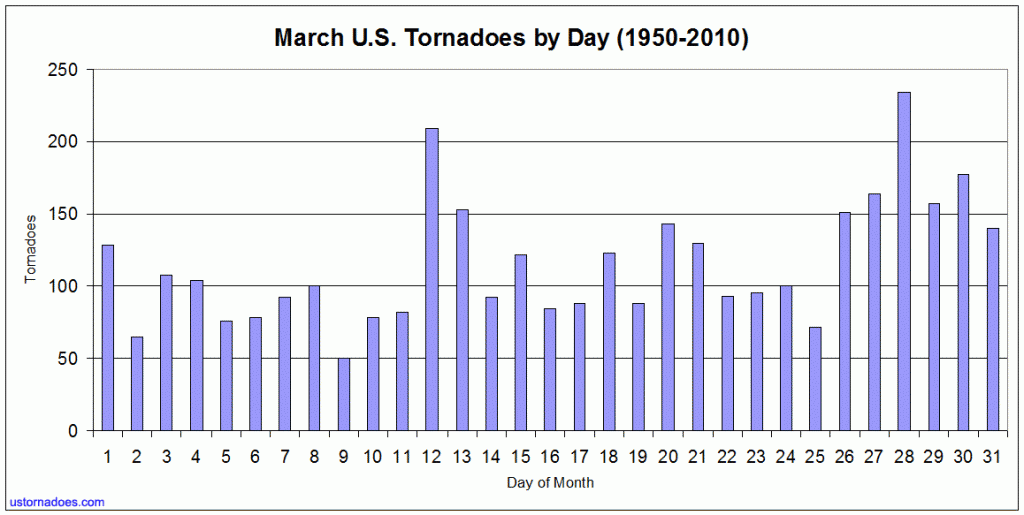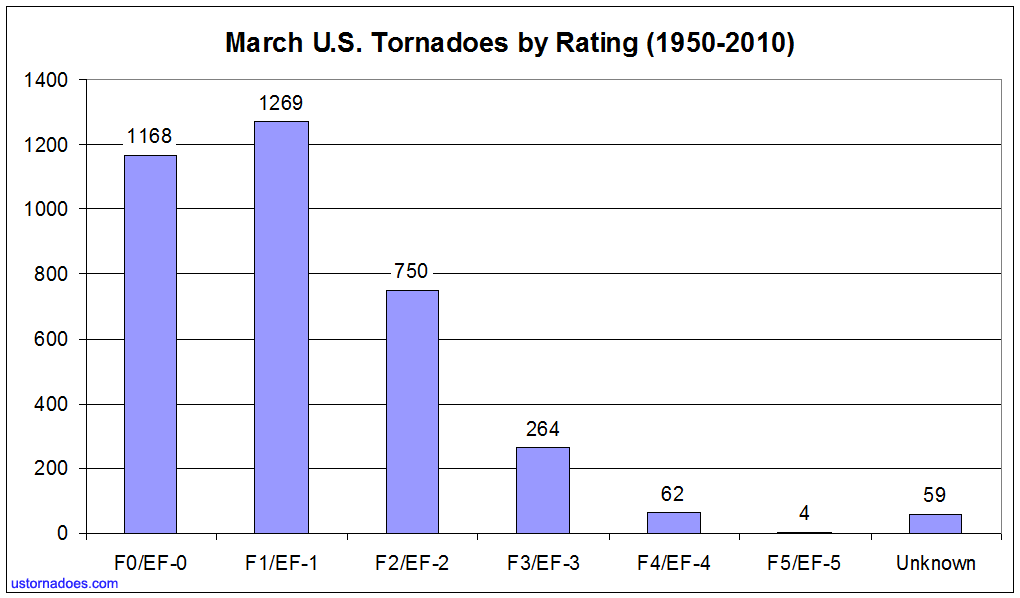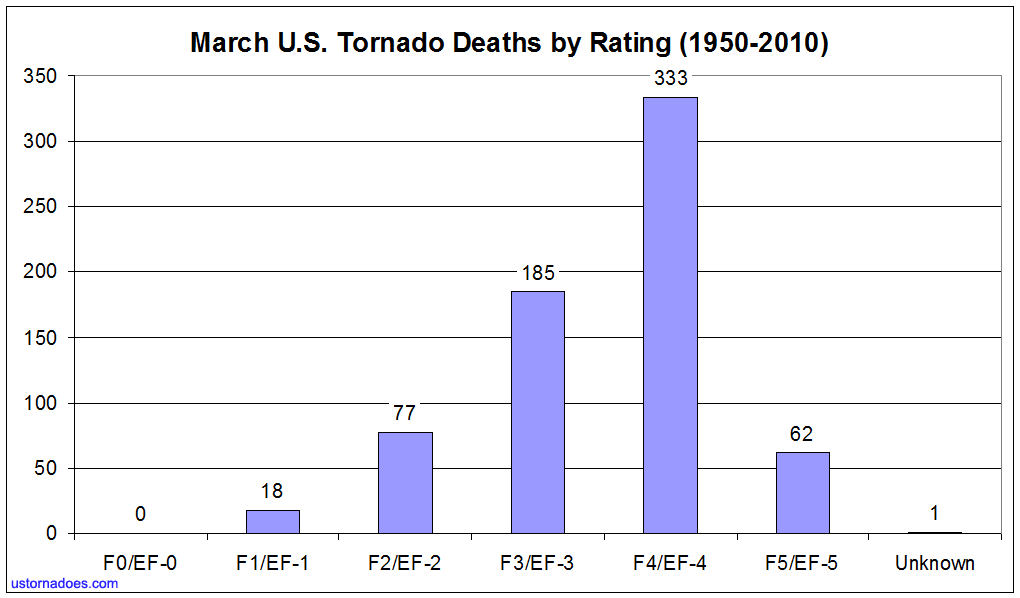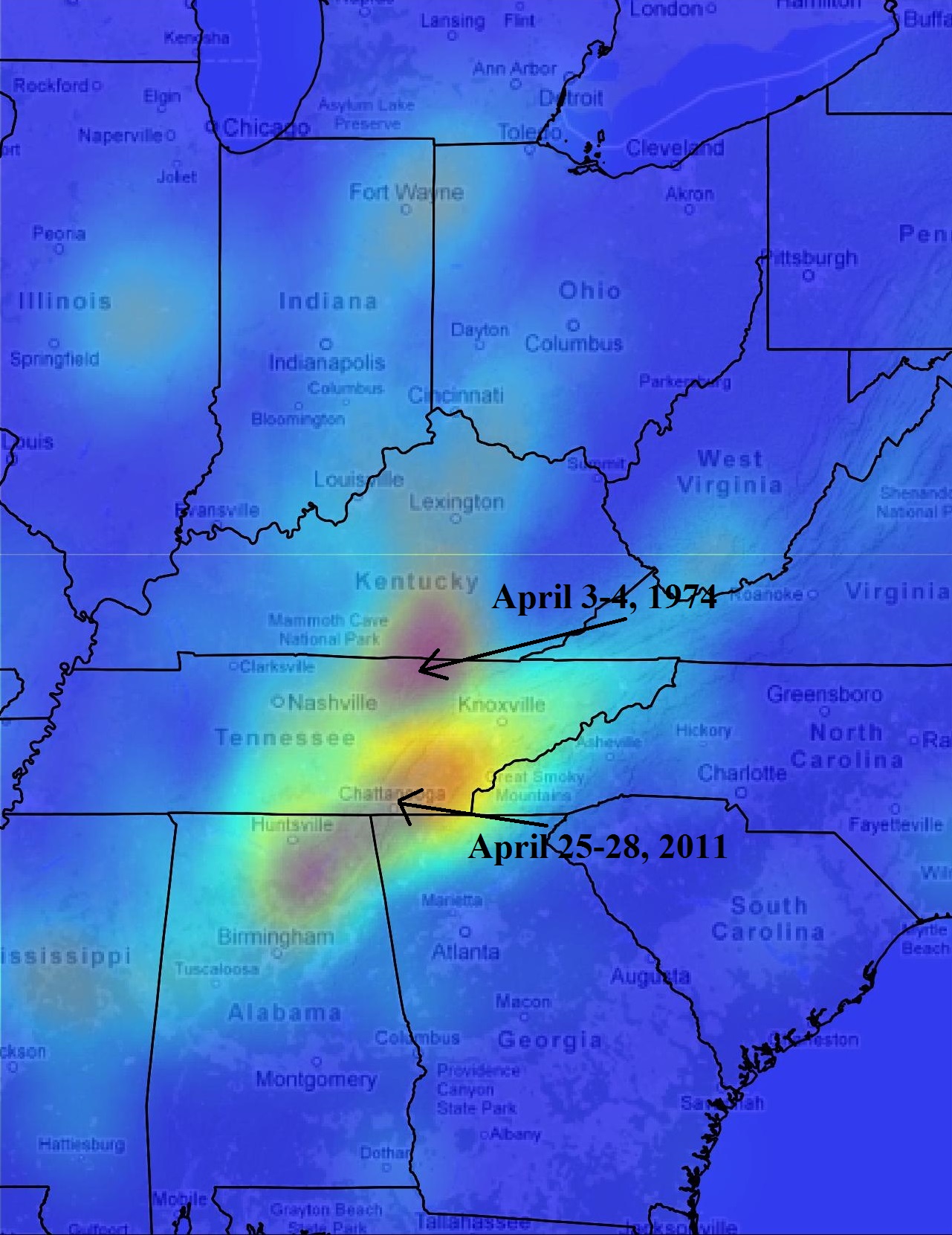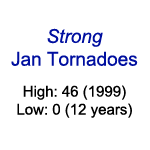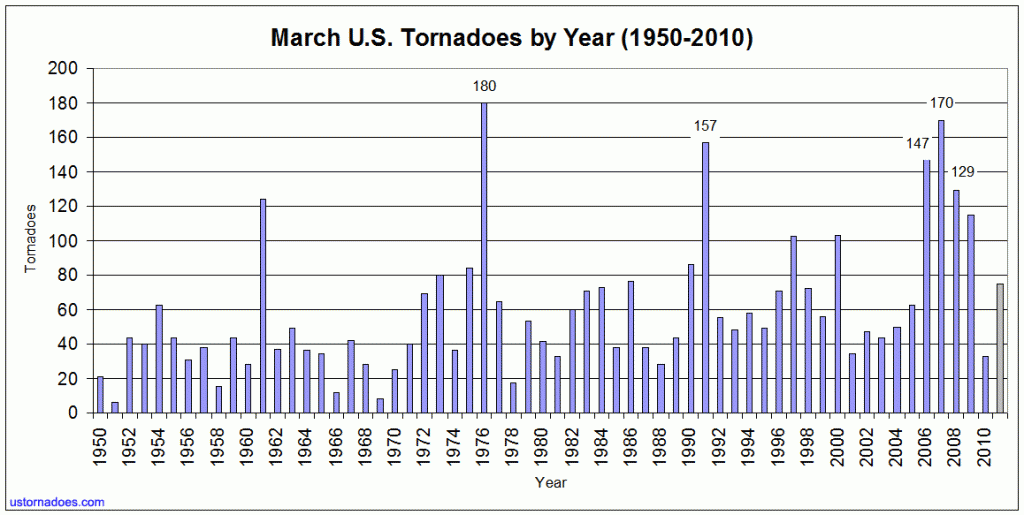
March is the oft-cited start of tornado season, though some experts rightfully point out that it never really ends — it just wanes. Nonetheless, the increased activity from February to March is quite notable most years and major tornado events have occurred during the month.
As with February, Patrick Marsh has a nice U.S. map showing locations of March tornadoes. The southeast remains a hot spot, but with the first real northward pushes of spring, tornadoes begin to expand their terrain to the north and west as well.
March Tornado Stats (1950-2010)
Total tornadoes: 3,576 (2.5 times Feb)
Long-term average (1950-2010): 58.6 (+35 since Feb)
30-year average (1981-2010): 71.6 (+44 since Feb)
10-year average (2001-2010): 83.0 (+51 since Feb)
Monthly high: 180 (1976)
Monthly low: 6 (1951)
Total fatalities: 676
Total injuries: 9,761
The states hit most by March tornadoes include Texas with almost 600, then Florida, Oklahoma, Alabama, Mississippi, Georgia and Kansas all in the 200+ range. However, almost any state can be hit by a March tornado, as they’ve occurred in 44 of the 50.
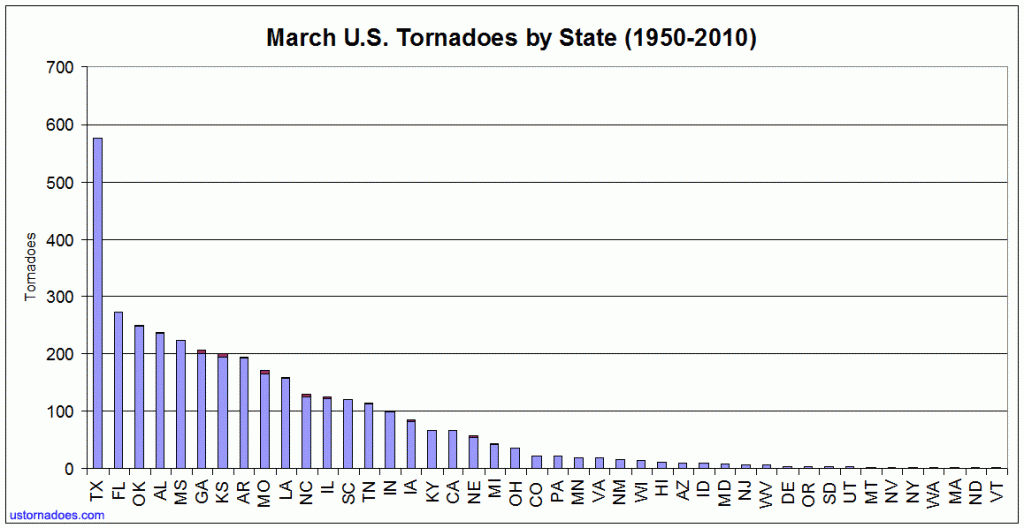
Significant (F2/EF-2+) tornadoes accounted for 30 percent of the total number of March tornadoes, but caused 97 percent of the deaths. The greatest loss of life in one March tornado came when 58 people were killed by a long-track F5 that moved from Mississippi to Alabama on the 3rd in 1966.
SPC tornado data obtained at the Tornado History Project. Images can be selected for larger versions. Get updates about U.S. Tornadoes on Twitter and Facebook.
Latest posts by Ian Livingston (see all)
- Top tornado videos of 2023 - January 1, 2024
- March 31, 2023 tornado outbreak videos - March 31, 2023
- Top tornado videos of 2022 - December 31, 2022
